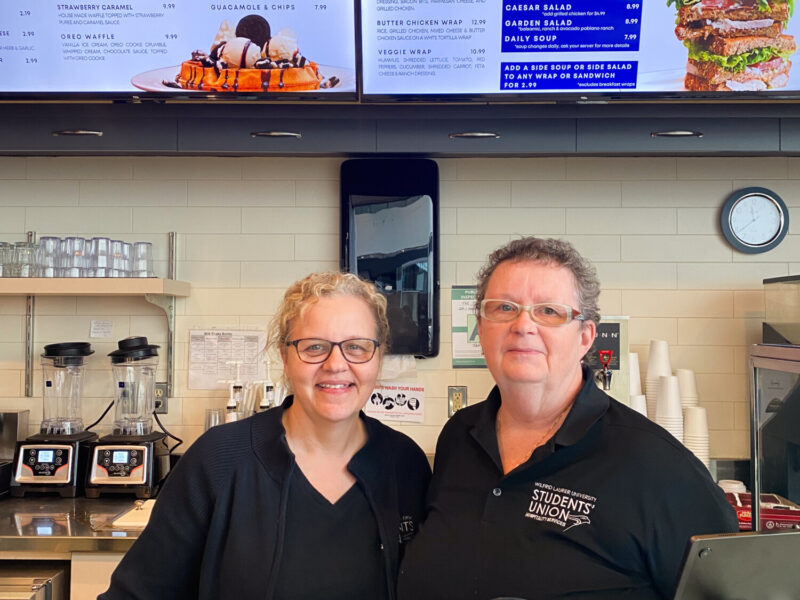Feminist issues are gaining attention on campus, as formerly incarcerated social activist and Laurier student, Kelly Rose Pflug-Back, hosted a public talk. In 2012, Pflug-Back was put in jail for involvement in Toronto’s G20 summit protests.
Last week, in the SC Johnson building, the Brantford and Laurier communities were invited to hear Pflug-Back’s testimony about her 8-month experience in prison. Bringing light to issues of gender, trauma and female incarceration, Pflug-Back sought to promote critical thinking of feminist issues to over 50 people that attended.
“If I can get people in university to start thinking about these things, and questioning if they can actually truly can be called justice, even if one person will [start] thinking about those things, then that’s something,” said Pflug-Back.
She shared her disturbing and intimate personal experiences with attendees regarding feminist issues such as criminalization of poverty, birth and reproductive rights, as well as the marginalization of indigenous women.
As a third-year student in Human Rights and Human Resources, Pflug-Back is planning to continue her talks on feminist issues, specifically regarding female incarceration. She is also working closely with the F-Word, a student, staff and faculty committee on gender diversity and social equity issues, along with staff and faculty to further promote feminist issues in an open forum and to encourage students to get involved. Students can look forward to upcoming events with the F-Word next semester.
Dr. Kate Rossiter, associate professor of Health Studies, commented on the how all faculties can benefit from this growing understanding of feminist issues. She explained how students on campus possess a general misunderstanding of feminist issues, and that the definition of feminism is connected to a stigma of hating men, anger and alienation.
“Taking a feminist standpoint means valuing the role of gender and inequality, as it impacts both women and men. Most of the disciplines on campus can benefit from taking a gender based and feminist analysis of the world,” said Dr. Rossiter. “It’s an imperative piece for understanding the world at large.” Dr. Rossiter is part of the F-Word, and the talk was hosted in conjunction with her Social Determinants of Health class.
“I think feminism is still, for a lot of people … a dirty word,” said Dr. Rossiter. “My hope would be that someone would end up in care giving or law enforcement who would understand sex workers and incarceration differently and have a face to put to that name,” she said.
First-year Law and Society student, Taylor Meeuse, explained why she felt it was important to attend. “In Law and Society, [the term] precedence means women are incarcerated based on time previous women served, the talk made the issues feel more real,” said Meeuse. “Feminist issues can apply to so many disciplines on campus, and an understanding of feminism is useful and valuable for everyone.”
The presentation encouraged students to have their own platform and voice regarding feminist issues. A multitude of students posed questions and comments after the presentation, which according to Pflug-Back, was exactly her goal.
“I don’t want to just sit there and talk at people,” said Pflug-Back. “There were some amazing comments afterwards. Some people proposed things that made me think, ‘I haven’t heard it said quite like that before.’”
Marcus Cousineau, a second year Criminology and Psychology student, attended the talk to expand his understanding of feminist issues within his own areas of study.
“Women in jail is a prime example of labelling theory so it really gave me a hands on look and it brought out my emotion,” said Cousineau.
Pflug-Back hopes that by sharing her story, students will get involved with prisoner support organization to make issues surrounding female incarceration visible. She hopes her future talks will encourage students to speak out about feminist issues.
“Everyone needs to have a voice and a platform to talk about their relationship with issues about gender and sex,” said Pflug-Back.



